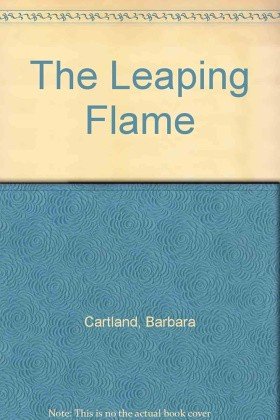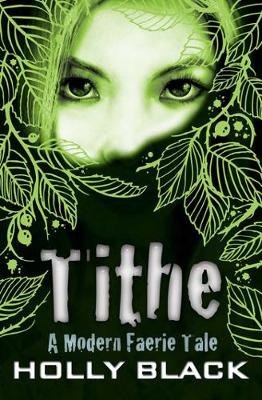‘Why does she suddenly want to be well-dressed? Is it for Michael? Is she already in love with him?’
It would not be surprising if Stella were. After all, she was living at the Park, she saw Michael every day, perhaps for hours at a time. He was attractive and no-one realised that better than Mona, and, to a girl coming from a quiet country village in Devonshire, where perhaps young men were few and far between, he might well prove irresistible. Even pride could not keep Mona from asking in a voice that strove to be light,
“Why do you want to be so smart? Have you found a young man in Little Cobble?”
She was ashamed of herself even as she said the words, but it was too late to prevent them from passing her lips. She simply could not remain in ignorance where anything to do with Michael was concerned.
Stella hesitated a moment and then, to Mona’s surprise, she blushed, a lovely flood of colour diffusing her cheeks and making her drop her eyes shyly.
“Oh, no,” she answered, but the words faltered and Mona knew they were untrue. There was silence for a moment before Stella bent forward impulsively.
“You’ve been so kind to me, Lady Carsdale,” she said, “that I’d like to tell you. I have never confided in anyone, in fact, there’s no-one in my life in whom I can confide. But, well, I suppose you’ve guessed it, I’m in love.”
“And I hope he’s in love with you?”
Mona knew that her voice was cold, icy, and she felt as if all the warmth had fled from her body.
“Oh, no,” Stella replied. “He doesn’t know, he has no idea. I don’t think he’d dream of such a thing. But one can’t help loving a person, can one?”
Her question was piteous, the cry of a very young girl who was afraid of her own emotions.
“No, of course not,” Mona said slowly. “These things happen to us, to all of us, but I hope for your sake that the story has a happy ending.”
“I hardly dare think of that, but perhaps one day ... I like to think so anyway. It gives me something to dream about, to work for and, don’t think I’m being dramatic, to live for.”
There was an expression almost of rapture on Stella’s face, and again, as if her voice spoke without her own volition, Mona asked through dry lips,
“Can I guess who it is? Is it Major Merrill?”
Stella’s quick exclamation held surprise and also a note of laughter.
“Of course not! I’d never think of Major Merrill like that! He’s, well, how shall I put it? Too grand. No, it’s…” Again she hesitated. “I know you won’t tell anyone, I’d be so ashamed, but it’s Mr. Gunther, Stanley. I think I’ve loved him ever since I first came to Little Cobble. I felt it was hopeless, of course, but now ... now he’s free, perhaps one day he will notice me.”
A warm gladness seemed to envelop Mona. She put out her hand and touched Stella’s.
“I hope so. I hope you both find happiness together.”
As if her confidence had released a flood of words that had been held almost to bursting-point, Stella talked on. Her voice was like the smooth murmur of a stream. Mona hardly listened.
She felt curiously happy and relaxed. She leant back, making suitable comments from time to time to encourage Stella in the telling of her life story. She talked until they arrived at St. Pancras and then, as the train steamed into the station, she turned to Mona with shining eyes.
“You’ve been so terribly kind to me,” she said. “I feel encouraged and hopeful. I can’t thank you enough.”
“But I haven’t done anything,” Mona replied. “I hope, more fervently than I can say, that everything will come right for you, and Mr. Gunther. One word of advice – don’t stand too much on ceremony. The Vicar may feel that he’s too old or too uninteresting to dare to approach you himself. You must encourage him, you must help him. He needs it.”
“I’ll remember,” Stella said solemnly.
Then they were threading their way through the crowd of passengers surging down the platform. Mona took a taxi and her last glimpse of Stella was of her marching along towards the underground, her chin held high, a smile of confidence on her lovely lips.
Mona drove first of all to a well-known jeweller in Bond Street. The shop had a branch in Paris and a great deal of the jewellery that Lionel had given her had been purchased there. She asked to see the manager, and producing her jewel case, opened it for his inspection.
“I want cash for everything you see here.”
He seemed to take her request as a matter of course. He examined each piece with care, asking the opinion of several experts on the emeralds and pearls. Mona sat watching them.
It was strange, but she felt uninterested now in the glorious gems that Lionel had given her. Once they had meant so much, but now they had sunk into their true perspective, even as her memories of the lover who had given them to her had become no longer poignant or agonising. Once she had thought that to part with Lionel’s presents would have broken all that was left of her heart. Now she knew that such possessions were important only because to her relentless conscience, they were a part of that self-erected barrier which stood between Michael and herself.
“An angel with a flaming sword,” she called it, and imagined that the hilt of the sword was studded with the glittering gems of Lionel’s choosing.
The manager interrupted her thoughts. He made a little speech about the jewels. The diamonds had increased in value, the emeralds were saleable, but the right customer had to be found. The pearls were not of great interest now that their cheap, effective, cultured cousins had swept the market. It was the usual voluble mixture of explanation and excuse that always accompanied the sale of an article for which one had paid a fancy price. Finally, however, he made an offer of what seemed to her an immense sum, running into many thousands. She accepted it without argument, adding,
“I want it in cash.”
She was told this would take a little while to procure, but she was content to wait. Someone offered her a cigarette. She sat half-oblivious of her surroundings, seeing, not the discreet brown and velvet interior of the jewellers, but the fields lying between the Priory and the Park, those fields over which she had been walking yesterday morning when Michael had come upon her unexpectedly.
How far away other memories seemed in comparison. Thrown into a misty background, utterly eclipsed, and overshadowed by the present, by Michael, and by all that he meant to her. Paris, Egypt, Buenos Aires, New York. Once they had all meant something stupendous. Their names alone could bring a throb to her heart, a sudden quickening to her pulses. Now they were but milestones vanishing over an indistinct horizon from which she had travelled a long way.
At last the money was ready for her. She asked for an envelope, and taking two fifty-pound notes addressed them to ‘Miss Stella Fairlace’ at ‘The Park’. One sentence was enclosed with it.
‘For your trousseau, with my best wishes.’
She arranged that it should be registered and posted, and then into another envelope she collected the rest.
“I hope you will be careful, Lady Carsdale,” the manager cautioned. “It isn’t wise to walk about with such a large sum on you.”
“I shan’t have it with me for long,” Mona replied, and getting into a taxi directed him to drive to an address in Piccadilly. When she got there, she kept the driver waiting while she handed in the envelope at the door.
“For the Save The Children Fund,” she said.





















